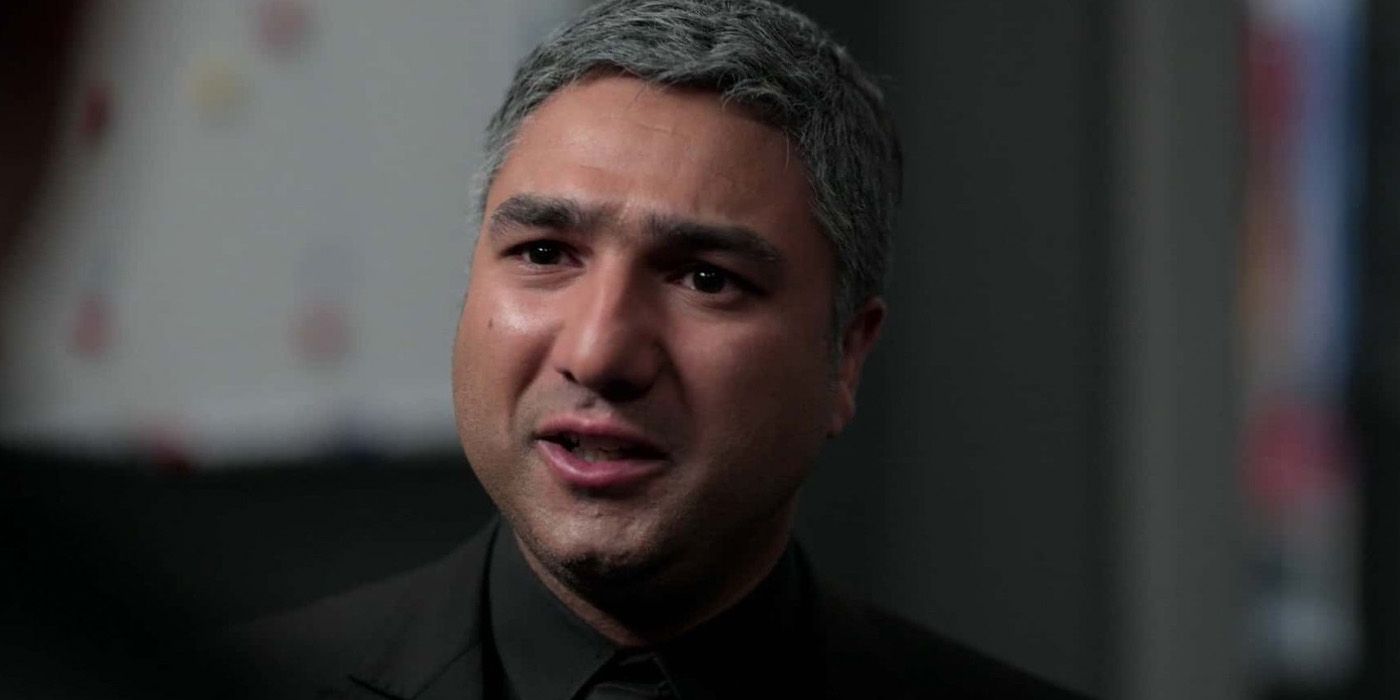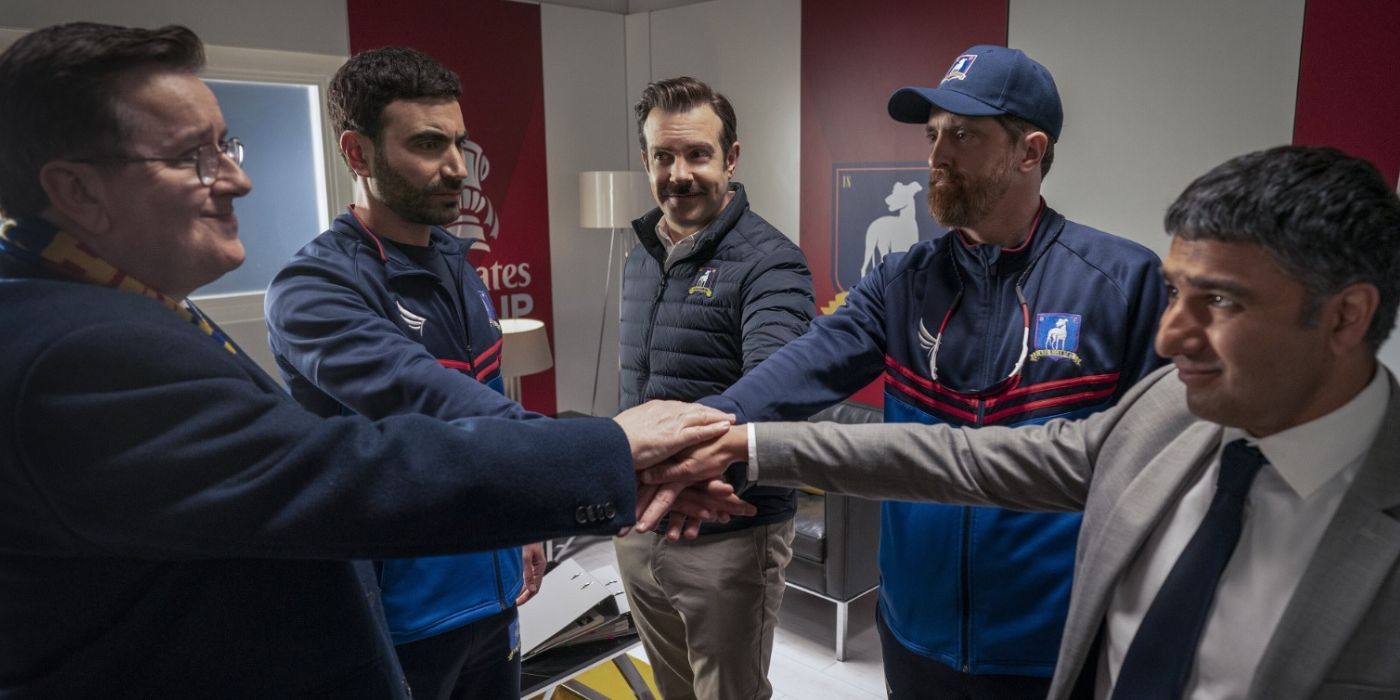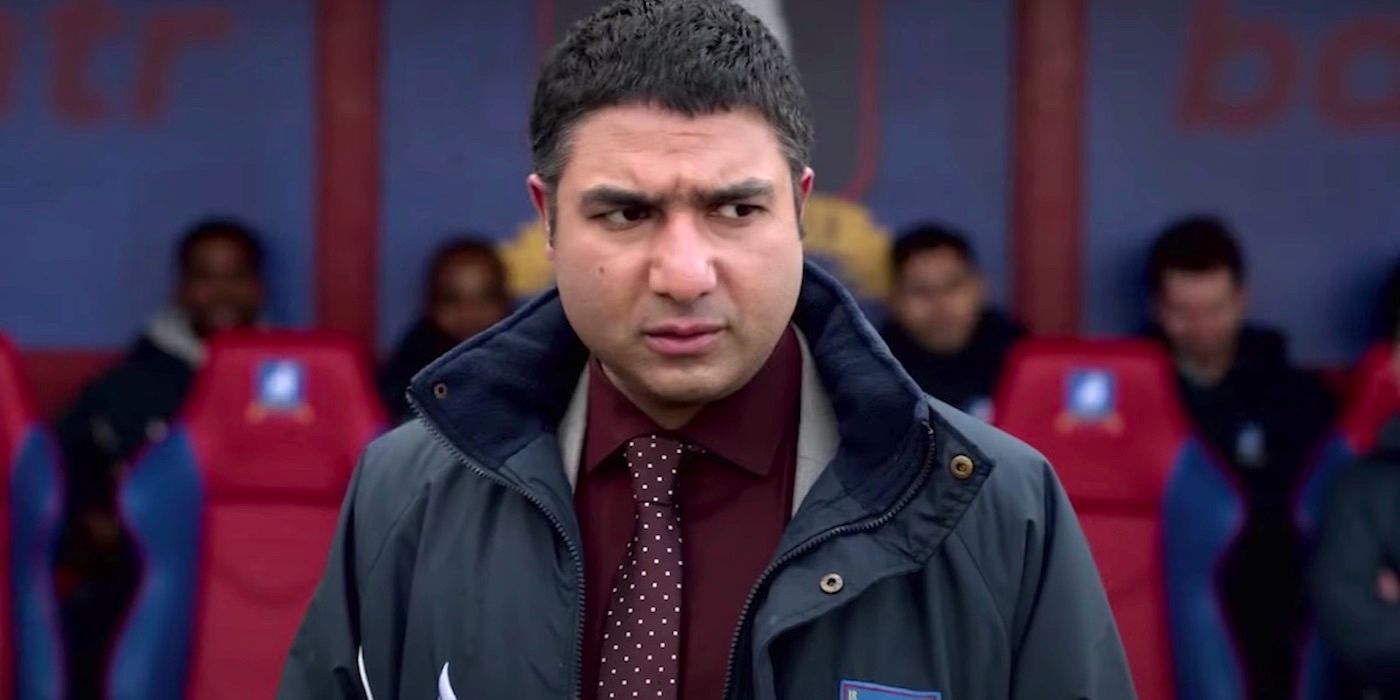I can understand those who felt betrayed by Season 2 of Ted Lasso. The first season carried itself as a largely uplifting sitcom where a fish-out-of-water coach, Jason Sudeikis' Ted Lasso, used his sunny disposition to improve the lives of everyone he met. The showrunners then made a bold decision to try and keep a sense of romantic-comedy at the core of the show but build something more complex and slightly darker around it. Not everyone went for that change, but as Ted Lasso Season 2 showed, change is essential. The more we remain stuck in our anger, guilt, and resentment, the more it will eat away at us.
Nowhere was that clearer than how the show depicted father-son relationships. The show’s biggest revelation was that Ted’s father had died by suicide, but the show kept returning to the relationships between fathers and sons. Sam (Toheeb Jimoh), arguably the show’s most positive and thoughtful character, has a great relationship with his dad, and while his dad challenges his son (like on the team’s controversial sponsor), he’s largely supportive and trusts Sam to make his own decisions. Then you have the toxic relationship between Jamie (Phil Dunster) and his father where Ted and really the entire Richmond AFC team was able to step in as a surrogate father figure and protect Jamie. But this sort of group-parentage was able to work out the kinks where certain participants could see where Jamie needed to be checked and when he needed to indulge his more questionable traits like when Roy (Brett Goldstein) tells Ted that Jamie needs to be a prick on the field rather than always making the extra pass.
But the father-son relationship that really came to a head in Season 2 was between Ted and Nate (Nick Mohammed). The first season really leaned into the positive protégé-mentor relationship between the two with Nate being elevated from kitman to assistant coach on the strength of his clever play-calling and ability to identify the weaknesses of the team. Nate then spent Season 2 looking for recognition that never came. As Higgins (Jeremy Swift) — a surrogate father for the whole team as seen when he basically has everyone over for Christmas dinner — points out to Keeley (Juno Temple), a good mentor trusts when their protégé is ready to no longer need help. But Ted, wrestling with his own demons this season, didn’t see Nate suffering, and Nate, misdirected all of his anger that had built up towards his biological father.
This whole season is Nate looking for approval from his own dad and never getting it. His father is a cold man, and so Nate keeps looking for approval, finding it in the worst places — social media, where it’s fragile and fickle, and in Rupert (Anthony Head), who has his own agenda. Nate wanted that kind of approval from Ted, but rather than viewing Ted as a man with his own problems, Nate continued to see him as a perfect father figure, a pedestal that Ted was destined to fall from because he could never live up to that kind of mantle. Season 2 worked diligently to take the shine off Ted Lasso as an individual and make him more human, but Nate didn’t want a human peer; he wanted that father figure who give him the praise and adoration that his own father continues to withhold.
So it’s really no surprise that Nate lashed out and attacked Ted in the final two episodes of Season 2. Worship had curdled into resentment, and while it would be nice to pin all of this on Rupert pouring poison in Nate’s ear, it all comes back to fathers and sons and what sons have to learn from their fathers. Nate is really just a boy (even his own increasingly graying hair seems to be mocking him as a sign of age without maturity) because instead of learning to stand on his own two feet, he’s still leaning on Ted. This isn’t to say that Nate’s anger isn’t ill-founded. He looked to Ted for a certain kind of relationship that Ted wasn’t in a position to give, and Nate is correct that he understands football better than Ted (although he misses that Ted’s coaching is about interpersonal relationships and mentorship rather than simply being able to call the right plays). But as Nate rails against Ted, he knows how to hit him where it hurts. “Why don’t you go back to America and be with your son?” Nate asks. It’s the equivalent of saying, “You have failed as a father just like you believe your father failed you and you have failed me.”
This may not be the show that Season 1 fans had hoped for, but I feel it makes Ted Lasso a stronger show overall because it’s not enough for characters to cheer each other on. As Beard (Brendan Hunt) tells Ted in Season 1, wins and losses absolutely matter. There can’t be the joy of victory without the agony of defeat, and Ted Lasso couldn’t show the spectrum of father-son relationships without taking Nate in this direction. I do feel bad for actor Nick Mohammed, who’s such a talented comic actor and didn’t get as many opportunities to make Nate funny this season. But ultimately, he also got to have one of the most interesting character arcs, and now Ted Lasso fans are foremost wondering what will happen with Nate in Season 3.
It’s a painful turn for the character, but it’s also necessary because Ted is not Nate’s father, and as long as Nate continues to look to other men for that patriarchal support (it now looks like Rupert is filling that role) rather than confronting his own father and stand on his own, he’ll continue looking in the mirror and spitting at his own reflection.
Season 3 of Ted Lasso is nearly finished filming. While the jury's still out on whether Season 3 will be the show's last, the cast is in denial over the thought of saying their goodbyes. In any event, following Nate's character arc and the toxic masculinity his storyline traverses lies on the horizon. Ted Lasso Season 2 is once again leading the awards season comedy nominations pack, with twenty Emmy nominations total. Ted Lasso Season 2 also swept the PGA awards, priming it for yet another exciting awards season.



